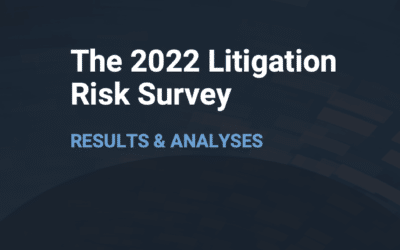Texas is booming as people flock to the business-friendly state, looking for everything from quality of life to a more supportive business environment. Yet one of the strongest critiques from the Texas business community has remained: Slow dispute resolution for civil cases between sophisticated businesses. This persistent issue has many causes, but it can generally be traced to a congested court system in which overburdened judges are tasked with deciding complicated business disputes without the requisite specialization and resources.
This past summer, Texas elected to remedy the issue. Governor Abbot signed into law H.B. 19, which created a specialty trial court for business disputes (the “TBC”), effective September 1, 2023. The courts themselves will be up and running this time next year. As Texas litigators working in litigation finance and insurance, Certum Group anticipates that these courts will become a substantial part of the Texas legal and business ecosystem and is accordingly following these developments with great interest.
For the curious but uninitiated, here are some key facts and considerations regarding this new forum for dispute resolution in Texas.
The TBC will be exclusively dedicated to adjudicating complicated commercial disputes.
Recognizing the complexity inherent in large commercial litigations and the attendant benefits of expertise, the TBC will have specialized jurisdiction over two primary types of cases: corporate governance disputes and commercial disputes.
Where the amount in controversy exceeds $5 million, the court will generally have jurisdiction over (i) derivative proceedings, (ii) actions regarding corporate governance, (iii) certain claims arising under state or federal securities and trade regulations, (iv) certain actions against the owner of an organization, (v) an action arising out of the Business Organizations Code, and (vi) suits alleging breach of corporate fiduciary obligations.
Where the amount in controversy exceeds $10 million, the court will have jurisdiction over actions in which (i) the parties specified TBC jurisdiction in the operative contract, (ii) violations of the Finance Code or Business and Commerce Code, or (iii) where the action arises out of a “qualified transaction”—which is generally defined as transactions involving loans, advances, or credit.
As a practical matter, by providing a centralized forum for the resolution of these common-yet-complex commercial and corporate governance cases, Texas hopes to both standardize and speed up the resolution of these important matters.
The courts will be served by more experienced judges with expertise in commercial disputes.
The judges on the TBC will consist of individuals with specialized knowledge and experience in litigating complex commercial and corporate governance disputes. And the judges will be appointed for two-year terms by the Governor with the “advice and consent” of the Texas Senate. Unlike most state court judges in Texas, judges on the TBC must be at least 35 years of age (rather than 25) and have at least 10 years of experience (rather than 4).
The legislature’s goal in requiring a more seasoned milieu of jurists is an increase in experience and (hopefully) pragmatism.
Appeals will be heard by a newly created specialty appellate court.
Simultaneous to enacting H.B. 19, the Texas legislature enacted S.B. 1045, which created the Fifteenth Court of Appeals. Seated in Austin, the court will have jurisdiction over appeals from the TBC and initially consist of a chief justice and two associate justices. In practice, this means that (at least for the first three years) all appeals will be heard by the same three-judge panel. The clear advantage of this new court is that it will ensure the existence of known and consistent case law at both the trial and appellate level. The Texas Supreme Court has jurisdiction over appeals from the Fifteenth Court of Appeals.
TBC will be required to issue reasoned opinions.
By requiring judges of the TBC to issue reasoned opinions, Texas hopes to create a predictable, stable, and fully articulated body of case law for Texas businesses. And, as of yet, there is every reason to think that it will succeed.
What should litigators do today?
While the courts do not come online until next fall, litigators should start to prepare today. Here are a few practice tips:
- When drafting contracts, consider whether your client should elect jurisdiction in the TBC once they are open.
- When deciding whether to commence litigation over the next 12 months, consider whether to file now in the existing courts, or whether to wait until next September to file in the business courts.
- Familiarize yourself with the rules and procedures of the TBC, so you are ready to take advantage of these potentially attractive new courts for your clients.







